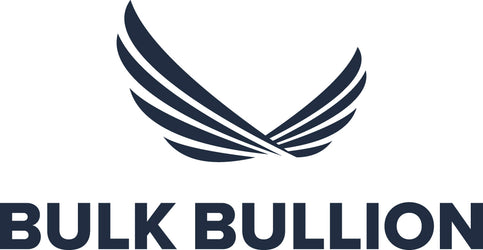
Unravelling Weimar Germany's Hyperinflation: Lessons from Economic Turmoil | Bulk Bullion
In the annals of economic history, few events are as haunting as the hyperinflation that plagued Weimar Germany in the early 1920s. The mere mention of wheelbarrows filled with worthless paper money to buy a loaf of bread conjures images of economic collapse and societal chaos. Yet, beyond the sensationalism, lies a cautionary tale rich with lessons for policymakers and citizens alike.
The Prelude to Disaster
The seeds of Germany's hyperinflation were sown during World War I. The government, desperate for funds to finance the war effort, resorted to borrowing heavily and printing money. This expansion of the money supply, coupled with the devastation of war, set the stage for the economic catastrophe that followed.
The Inflationary Spiral
As the war ended and the Treaty of Versailles imposed hefty reparations on Germany, the economy was already teetering on the brink. To meet these obligations, the German government continued to print money, exacerbating inflation. Prices soared, wages lagged behind, and savings evaporated overnight. Ordinary citizens found themselves impoverished as the currency rapidly lost its value.

Above: 100 Billion Mark Note: A loaf of bread in Berlin that cost around 160 Marks at the end of 1922 cost 200,000,000,000 Marks by late By November 1923
The Domino Effect
Hyperinflation doesn't happen in isolation; its consequences reverberate throughout society. With savings rendered worthless, trust in the financial system eroded. Pensioners saw their retirement funds vanish, while businesses struggled to operate in an environment of uncertainty. Social unrest simmered as ordinary Germans grappled with the fallout of economic mismanagement.

Above: Fiat Currency: Wheelbarrows filled with worthless paper money to buy a loaf of bread, September 1923
Coping Mechanisms
In the face of hyperinflation, Germans resorted to creative means of survival. Bartering replaced traditional forms of commerce, and workers demanded multiple wage increases daily just to keep pace with soaring prices. Some turned to alternative currencies or precious metals to preserve what little wealth they had left. Meanwhile, speculation and hoarding further fueled the chaos.
Lessons Learned (or have they?)
The hyperinflationary episode in Weimar Germany serves as a stark reminder of the dangers of unchecked money printing and fiscal irresponsibility. It underscores the importance of sound monetary policy, prudent fiscal management, and the need for international cooperation to prevent such crises from recurring.

Above: Markets Can Crash Upwards: Gold vs. Paper Fiat Currency value
Implications Today
While the circumstances of Weimar Germany may seem distant, the lessons it offers remain relevant in today's world. Central banks must exercise caution in their pursuit of economic stimulus, mindful of the long-term consequences of excessive money creation. Governments must prioritize fiscal sustainability to maintain the trust and confidence of their citizens. And societies must remain vigilant against the erosion of economic stability and the rise of extremism that can accompany periods of financial turmoil.
The hyperinflation of Weimar Germany stands as a cautionary tale for the ages. It serves as a stark reminder of the devastating consequences of fiscal recklessness and the fragility of economic stability.
Those who acted when they saw the early signs, saw their wealth sore. However, history went on to record, those that had the most to lose were doing the least. The question we must ask is, can you see any similarities in today’s economic climate? If so, how are you positioned moving forward.
Reach out to one of our team today to learn more, here

Leave a comment